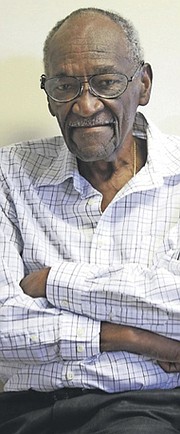Cases of criminal misconduct against parliamentarians have not been prosecuted and the government has made no effort to confiscate the proceeds of crime from perpetrators, former Assistant Police Commissioner Paul Thompson reveals in the latest part of his weekly series.
The Constitutional Review Commission chaired by Sean McWeeney recommended the appointment of an independent Director of Public Prosecutions, and an ombudsman who would investigate complaints against the government. These positions, which are long overdue, would have to be non-political and operationally autonomous.
Over the course of my 30-year police career, the investigation of numerous matters involving people in positions of authority were compromised by political interference. Investigations that should have led to the arrest and prosecution of politicians and public servants were instead dealt with internally. In the case of politicians, this often involved instructions from the Attorney-General not to prosecute.
Most recently, there has been the police investigation in a Family Island where there was an alleged political interference in a court matter. There was also the trial of individuals charged with firearms possession that was suddenly discontinued by a nolle prosequi (no prosecution) order from the Attorney-General. And there was a prima facie case of corruption against a politician that never reached the Supreme Court.
And we all know that the Public Disclosure law has been largely ignored by Members of Parliament and others. According to Section 14 of this law, “A prosecution for an offence ... shall not be instituted without consent of the Attorney-General.” So the obvious concern is whether an Attorney-General appointed by the government would ever authorise the prosecution of his or her colleagues.
These are cases of criminal misconduct involving MPs, with irrefutable evidence, yet they are not being prosecuted. An independent Director of Public Prosecutions would be expected to undertake vigorous prosecution.
There is also a law providing for the seizure and forfeiture of the proceeds of crime and money laundering. I have written for years about the provisions of this legislation, which makes it possible for government to confiscate the assets of those involved in serious crimes such as drug and human trafficking, gun running and money laundering.
But, unfortunately, successive governments have usually taken no action to seize criminal assets. As a result some offenders are able to reinvest in their criminal activities. It is the responsibility of the Attorney-General to seek the forfeiture of the proceeds of crime. The criminals would have to satisfy a court as to how they were able to acquire their wealth, and the legislation is very clear on how this is to be done - through the joint actions of the police, the Financial Intelligence Unit and the Office of the Attorney-General.
These agencies have the authority to conduct such investigations both within and outside The Bahamas, with the power to obtain information from the Registry and from local banks.There is no statute of limitations, and it is clear that the intention of the law is to provide significant powers to seize the assets of criminals. Similar procedures are in force in the United States, Canada and other countries in the region.
In 2013, The Tribune reported that the US government had tried to seize the assets of a well-known drug baron based in The Bahamas. Some $14m was at stake, but the case failed on a technicality and the money remains in the hands of the criminal, who is serving a prison term in the US. The Bahamian government made no attempt of its own to seize that money.
In the 1990s, several vehicles owned by a convicted drug lord were seized and held at the Police College. They have been there ever since. They were taken from “Ninety” Knowles, who recently threatened to sue the government over the loss of his vehicles. Is there an explanation as to why these vehicles have been held at the Police College for almost two decades?
The tracing, seizure and forfeiture of criminal proceeds would be an effective weapon in our fight against crime in our country. Cash and other assets so recovered could be used to provide much-needed resources for our law enforcement agencies. For example, the Trinidadian government recently seized the property of a drug lord who was hanged with seven others for murder. The property is a vast estate that is now being used as a treatment centre for drug addicts.
Public servants with large property assets should be subject to investigation by the Financial Intelligence Unit if there is any suspicion that those assets were obtained through corrupt practices. In my opinion, whenever a vehicle, vessel or aircraft is found to have been used in a criminal enterprise it should be confiscated by the court and sold to raise money for the Criminal Investigation Fund.
In the US and other advanced nations every available weapon is being brought to bear against terrorists, one of which is the restricted movement of money. In The Bahamas, crime can be considered a form of terrorism as it poses a direct threat to our main revenue earner - tourism. So every weapon at our disposal must be used against the criminals. The seizure and forfeiture of the proceeds of crime would be a most effective tool. Use it!
NEXT WEEK: crime, tourism and the security of visitors
Comments and responses to insight@tribunemedia.net





Comments
Well_mudda_take_sic 9 years, 4 months ago
The time for Paul Thompson to have spoken out about the matters raised in his article above has long gone by. He reminds me of Loftus Roker.....another one whose conscience is troubling him in his twilight years for having remained silent and not done the right thing many years ago when it may have made a difference.
Sign in to comment
OpenID